How Natalie Chow is saving the environment with #Guiltfreekicks through startup KIBO
With 15 years of experience in fashion and beauty marketing, Natalie Chow has seen all that’s under the hood.
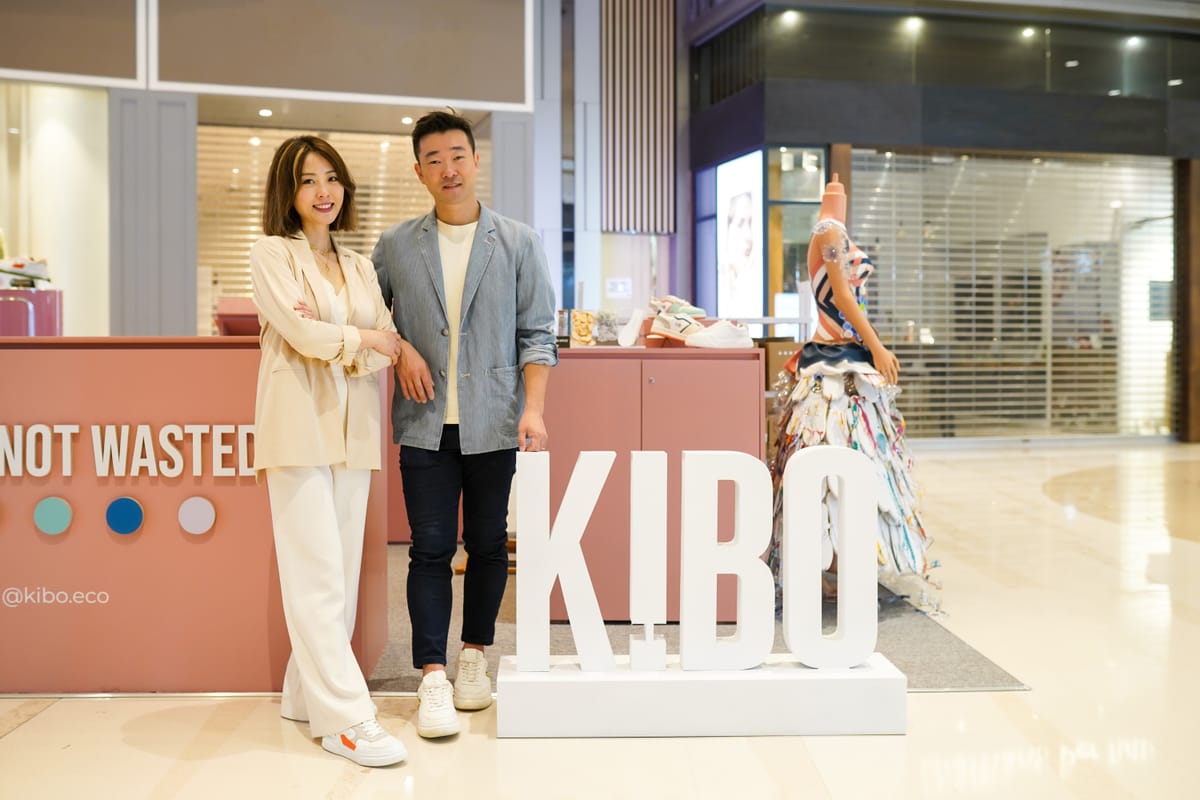
A few minutes every morning is all you need.
Stay up to date on the world's Headlines and Human Stories. It's fun, it's factual, it's fluff-free.
Welcome to the Human Stories series by TMS, where we get to know Hong Kong through its many different faces. This weekend, we’re featuring Natalie Chow, entrepreneur and founder of KIBO.
With 15 years of experience in fashion and beauty marketing, Natalie Chow has seen all that’s under the hood – observing the industry's myopic focus on short-term commercial gains. Driven by a passion for raising awareness about climate change and labor exploitation, she took a major step, abandoning her 9-to-5 job at the beginning of the pandemic to co-found KIBO with her partner, Simon Chow.
Named after the Japanese word for "hope," KIBO uses repurposed materials like leather trimmings from factories and recycled plastic waste to create sneakers with minimal environmental impact. Talk about stylish, functional and good for the world!
TMS sat down with Chow to learn more about her life and how she’s changing a part of the fashion industry for the better. She sheds light on the inner workings of the fashion industry, what it’s like working with her husband and how she balances work and being a mother.
A green heart
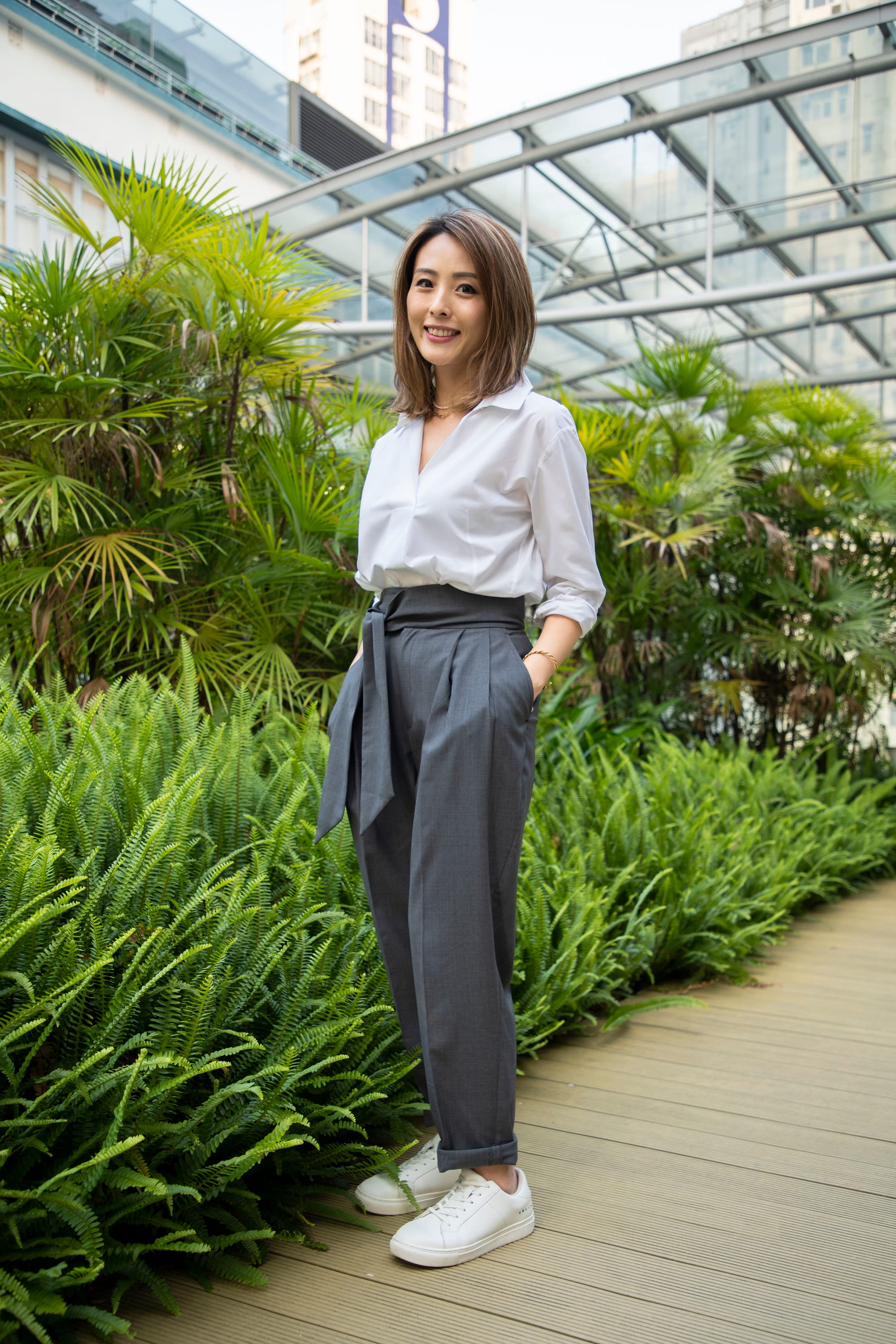
Born in Hong Kong but growing up in Australia, Chow found recycling and caring for the environment second nature to her. Being in touch with the Earth and living slowly allowed her to feel deeper connections with the world she was living in. Returning to Hong Kong after graduating, Chow remembers her shock when she noticed how little people paid attention to their consumerism and waste disposal. Not only that, but she realized that she was indirectly contributing to the problem by being in the fashion industry.
“I guess I didn't know how horrible the industry that I was working with was until the media really revealed it in recent years,” Chow says, pointing to how large fashion companies would have massive budgets every season to simply “write things off.” But over time, working in an industry that overproduced and threw things out so systematically no longer made sense to her. “I guess that was the trigger to how I started the brand – KIBO,” she says.
On the other side, her husband, Simon Chow, comes from a family of footwear manufacturers. While he still does trading for his family, his time in the industry allowed him to look at the production end and how large corporations handled their waste management. Not only was pollution a problem, but he noticed the copious amounts of greenwashing from the business consumer’s end. No longer did he want to compromise on his production, or even worse, to simply “slap a label” onto his products. So, he happily subscribed to his wife’s dream of starting her own eco-friendly sneaker brand.
KIBO
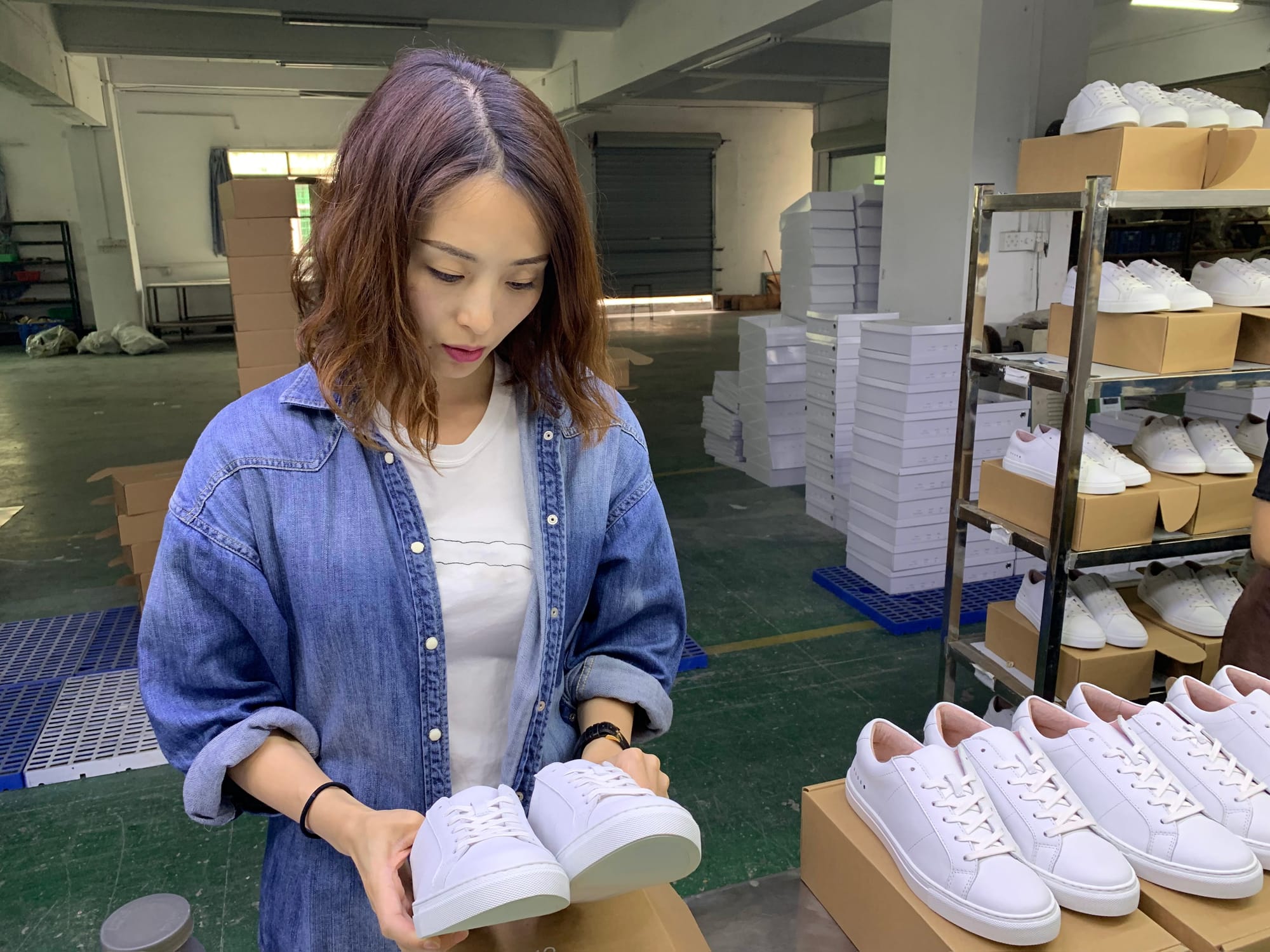
“I think during mat leave was when I had time to really think – do I want to be in this forever?” Chow ponders. “If I don't do it now, it’ll be harder down the road.” In 2019, the Chows kicked their project into action.
“There weren't a lot of leather alternatives back then, to be honest,” Chow says. So, they had to get creative. They started with recycled leather, which takes scraps from tanneries, an incredibly polluting industry both in water and waste, and the factory grinds the scraps into leather fibers. They then mix it with recycled plastic fibers to get the material to create the top part of their recycled leather shoes.
But KIBO’s research and development didn’t stop there. After listening to their customer’s requests for more vegan-friendly alternatives, the Chow’s got to work on vegan leather. “We tried cactus, we tried apples, we tried pineapples,” she remembers. “We really liked the apple leather finishing, as well as how it achieved a high bio-based content of over 66%.”
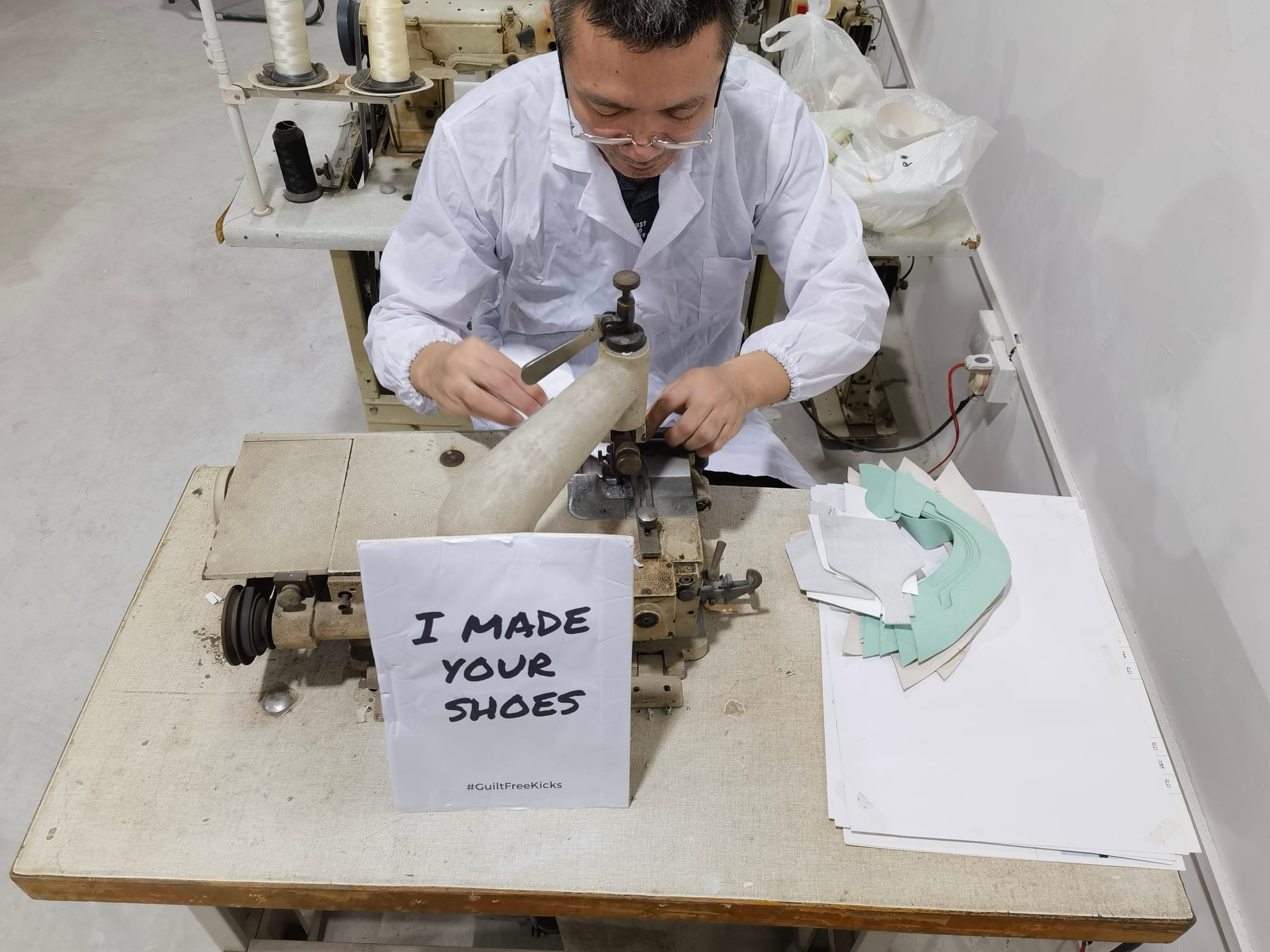
The Japanese word “KIBO” means “hope,” and Chow explains how she wishes to give waste hope or a second chance. But the brand doesn’t only pertain to waste and sneakers; Chow is also an immense advocate for human rights. Human trafficking is one of the largest criminal enterprises in the world, with thousands of men and women bought and sold every day. “The fashion industry, unfortunately, is one of the largest culprits, and we want to, you know, help raise that awareness,” Chow says. KIBO proudly donates some of its proceeds to the NGO Compassion First, which helps fight for human rights.
“It takes time to nurture. I think when it comes to a baby and a brand, you can’t expect it to grow overnight,” Chow says when asked about the similarities between having a child and a startup. “Teaching your child to use utensils will take months, but eventually, you’ll get there if you’re persistent.” With so many distractions thrown at an entrepreneur, staying on track with what’s important is crucial to growing a brand that aligns with your vision.
Together forever
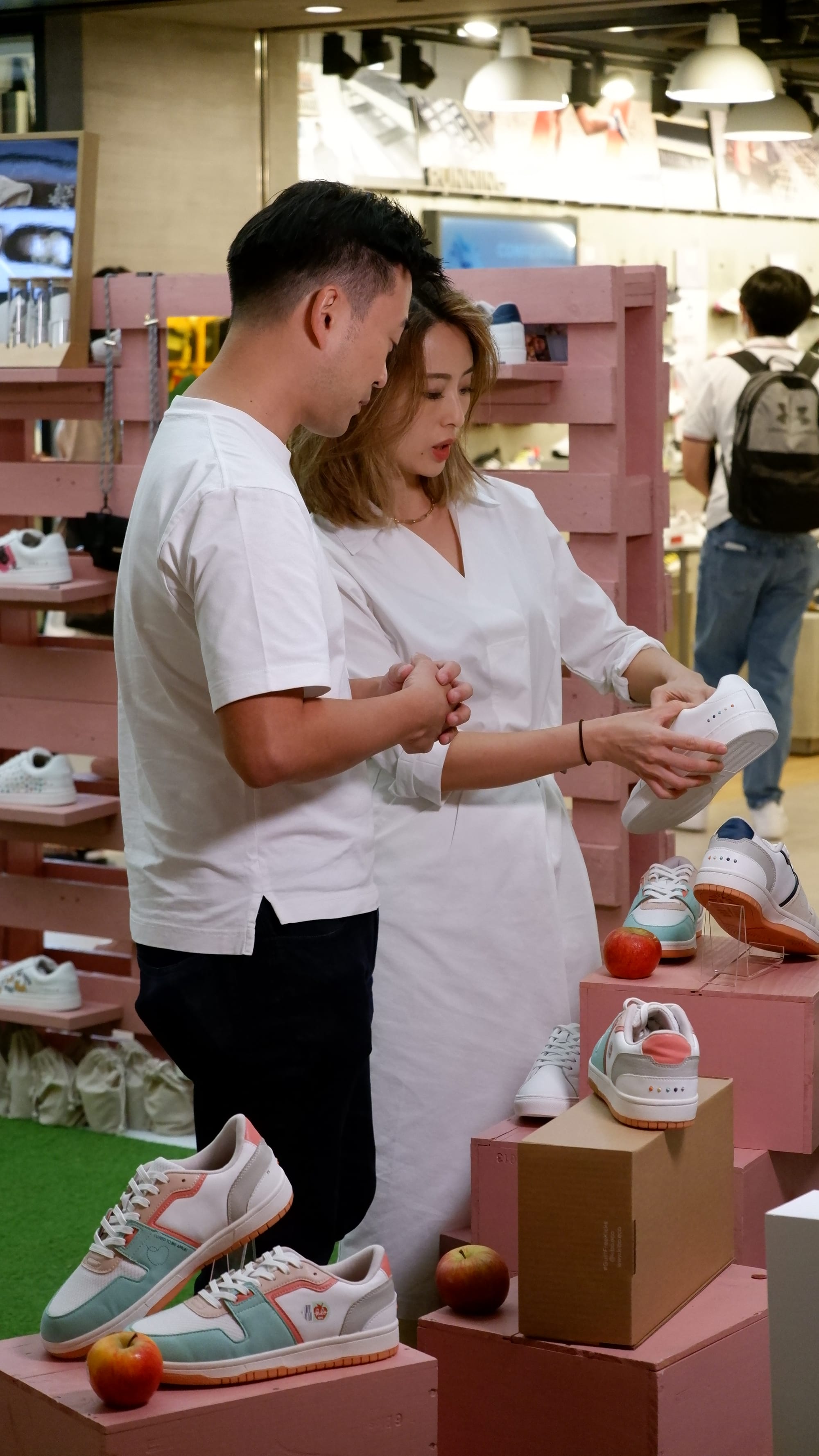
So, what is it like to work with your partner? “I don’t recommend it!” Chow exclaims when asked. “I think being parents is hard enough in Hong Kong. It’s a miracle how we’re still married!” She delves into opening the brand during COVID – the couple were working from home, homeschooling and taking care of the business all at the same time. It was a tough feat separating personal and working life, but they managed and have grown closer, learning more about each other and themselves. The Chows have built a team together where they’ve learned to delegate and trust each other with different tasks without treading on each other’s toes.
“You know, when you marry somebody, you don’t see that side of him. You don't see the working side of your spouse, right?” Chow says. Comparing launching a startup with having a baby, she says an incredible amount of emotions come with it. Under such a high level of stress, sleepless nights and limited resources, the couple have seen the best and the worst of each other. She smiles as she explains that the small wins kept them going. She explains that without her husband, she doesn’t think she would have had the courage to start the business.
When asked about the key to success when it comes to settling disagreements with a partner, Chow can’t help but stifle a giggle. “I think that Simon has definitely nailed that more than I have,” she admits. “I think he’s very good with calming himself down.” She explains that sometimes simply walking away from the conflict can be the best thing to do. The next day, when emotions simmer down, is when a civilized conversation can take place. “Easier said than done, though!” she says.
A lifetime commitment
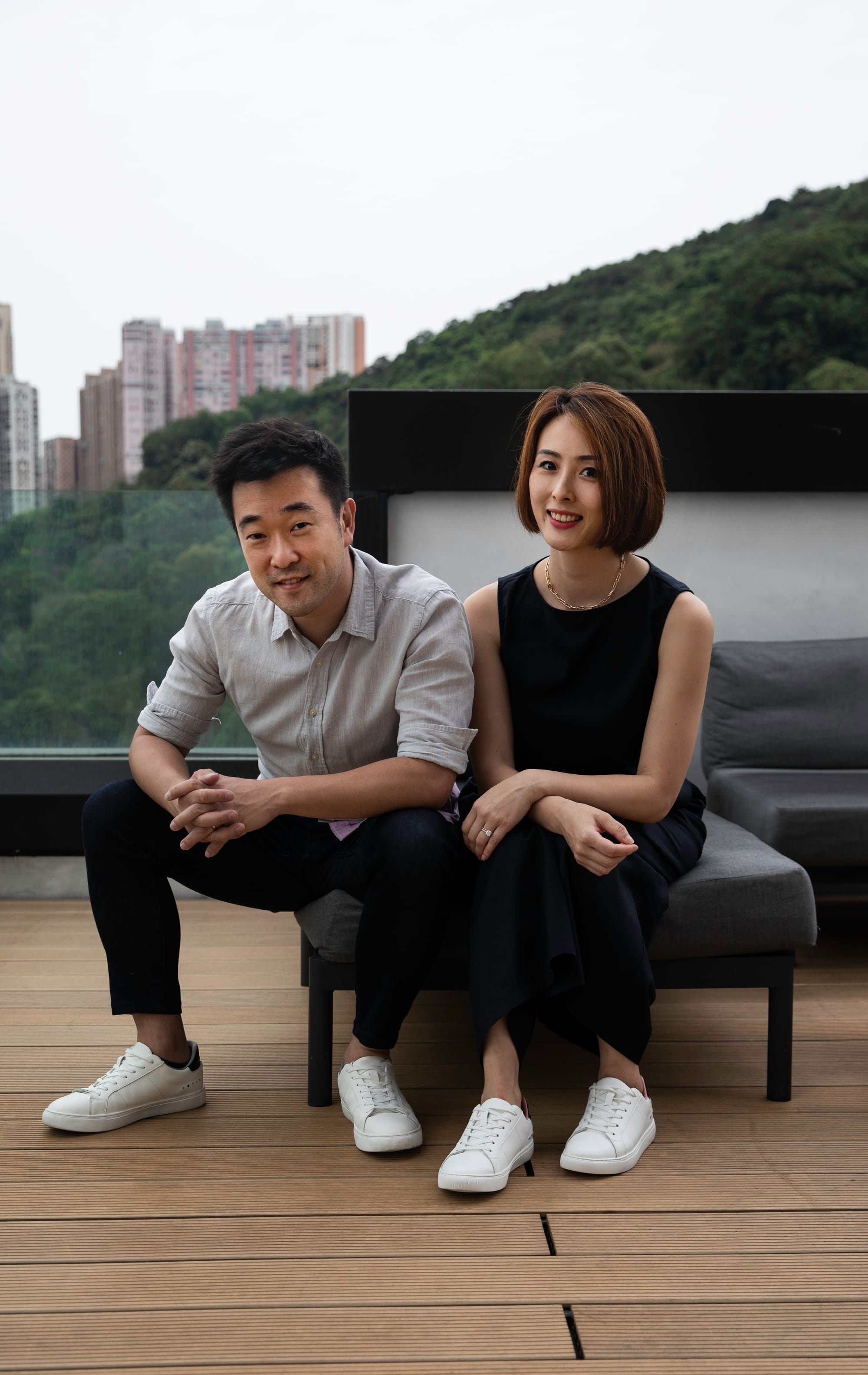
The Chows have made great strides in their business collaboration – but also in their partnership. She explains that marriage is a big deal to her, and she thinks divorce is too quickly done nowadays. “What’s the point then?” she asks. “You might as well not get married in the first place.” To Chow, getting married was scarier than starting her own business. Closing a business is one thing, but the effects of divorce on a child are colossal, and that just wasn't something she was going to risk for her children.
“Things just work out,” Chow breathes, reflecting on the previous two years – from taking care of everything and everyone to ensuring she doesn’t collapse from the pressure. She’s let go of the need to be perfect at all times and decided that it was alright sometimes to make mistakes.
These days, with so much going on and little alone time, Chow admits that she doesn’t take much of a moment for herself. She admits that exercise in the morning doesn't quite cut it to relax completely, but it allows her to clear her mind and be ready to address the day ahead. She also holds her faith close to her heart and is grateful for her relationship with God – someone she can speak with whenever she needs.
The experience of becoming a mother of a human and a mother of a business has taught Chow that despite circumstances making it easy to beat herself up (or other people), she’s learned to be more tolerant and forgive more easily.
“I’ve learned to put that aside and have less judgment on others as well as yourself. It's easy to beat yourself up at night,” she says. “I think I am still who I am. I do a lot more things that I don’t like, but it has to be done; it’s just a part of life.”




Comments ()